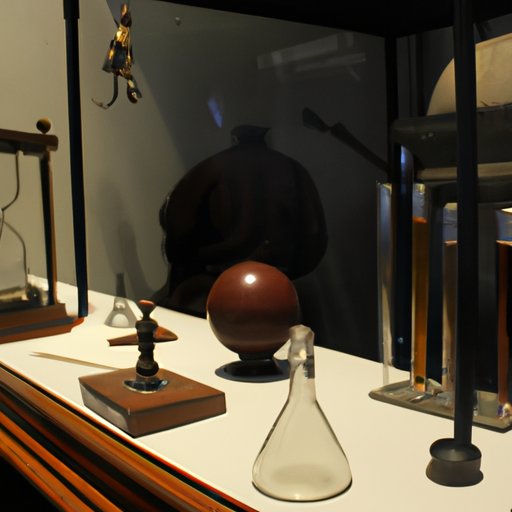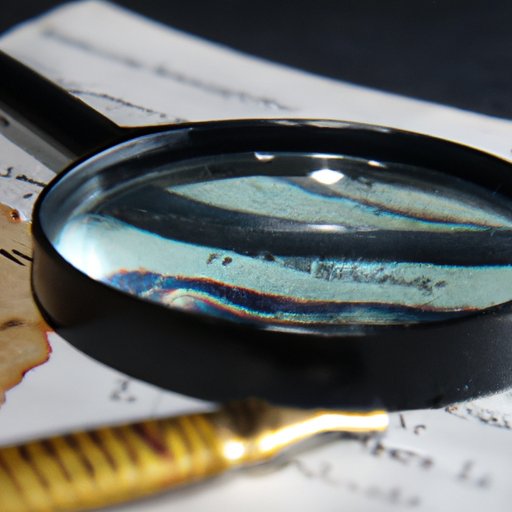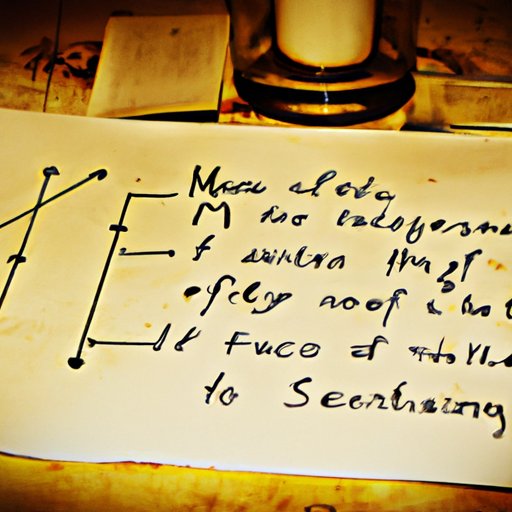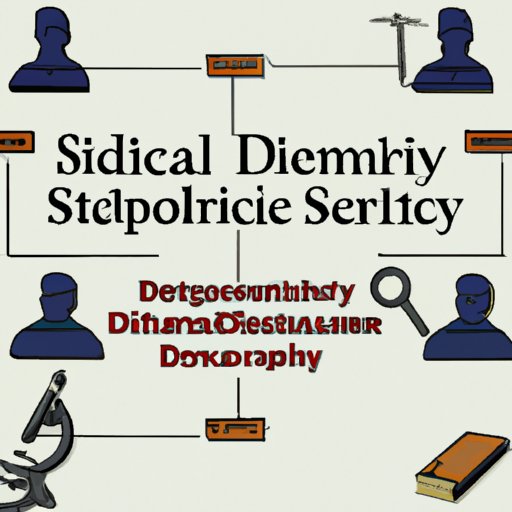Introduction
Science is the study of the natural world through observation and experimentation. It involves the use of scientific methods, processes, and tools to investigate natural phenomena, generate new knowledge, and develop new technologies. The quest to understand the universe and its many mysteries has been ongoing since the dawn of civilization, and science has been at the forefront of this journey. But how old is science exactly? This article aims to explore the history and development of science over time, from its earliest beginnings to its current state.

A Historical Look at the Development of Science
The history of science can be traced back to ancient times, when philosophers and thinkers sought to explain the world around them. Ancient Greeks such as Pythagoras, Aristotle, and Socrates developed theories about the physical world, which laid the groundwork for modern science. They believed that the universe was composed of a series of perfect circles and spheres, and that the planets and stars moved in predetermined patterns. These ideas were later expanded upon by Islamic scholars, who made significant contributions to the advancement of scientific knowledge.
Early scientific discoveries and practices included astronomy, mathematics, medicine, and chemistry. Astronomers, such as Ptolemy and Copernicus, studied the movements of the stars and planets, while mathematicians, such as Euclid and Archimedes, developed theories and formulas regarding the nature of space and time. Physicians, such as Hippocrates and Galen, advanced the field of medicine with their observations and experiments, while chemists, such as Ibn Sina and Jabir ibn Hayyan, developed theories about the composition of matter and the properties of substances.
The Evolution of Scientific Thinking Over Time
As time progressed, scientists began to shift their focus away from traditional religious and philosophical explanations of the world and towards empirical evidence and experimentation. Galileo Galilei, Isaac Newton, and other pioneers of the Scientific Revolution rejected the prevailing Aristotelian view of the universe and instead proposed new theories based on observation and experimentation. This marked the beginning of the modern era of science, which saw an explosion of new discoveries and inventions.
In addition to the development of new areas of exploration and discovery, such as biology, geology, and physics, there have also been changes in approaches to scientific research. Scientists have increasingly turned to technology and computers to help them analyze data and draw conclusions. In recent years, there has also been a greater emphasis on interdisciplinary studies, which involve combining different disciplines in order to gain a more comprehensive understanding of complex issues.
Examining the Roots of Modern Day Scientific Practices
The traditional scientific method consists of four steps: observation, hypothesis, experimentation, and conclusion. This method has been used for centuries and remains the foundation of modern day scientific practices. Scientists observe a phenomenon, form a hypothesis, design an experiment to test the hypothesis, and then draw a conclusion based on the results of the experiment. This process is repeated until a reliable and repeatable result is achieved.
In addition to the traditional scientific method, current trends in scientific research include the use of technology and computers to analyze data, the application of mathematics to solve problems, and the exploration of new fields such as nanotechnology and robotics. Scientists are also looking beyond the confines of traditional disciplines to examine the wider implications of their work, such as the environmental and ethical impacts of their discoveries.

Tracing the History of Scientific Discoveries
Throughout history, there have been many notable accomplishments in the field of science. From the invention of the telescope to the discovery of DNA, these achievements have changed the way we view the world and our place in it. Famous scientists such as Albert Einstein, Marie Curie, and Stephen Hawking have made significant contributions to our understanding of the universe, and their work continues to inspire new generations of researchers.
Exploring Ancient Philosophies That Led to Modern Science
Ancient philosophies played an important role in the development of modern science. The writings of Greek philosophers such as Plato and Aristotle laid the foundations for scientific thought, while Islamic scholars built upon their ideas and established the first universities dedicated to scientific study. Religion and culture also had an influence on the development of science, with some cultures placing a greater emphasis on certain areas of research than others.

An Analysis of the Age Old Scientific Method
The scientific method is still widely used today, although it has evolved over time to incorporate new technologies and approaches. The process begins with observation and the formation of a hypothesis. Experiments are then designed to test the hypothesis, and the results are analyzed to draw a conclusion. This cycle is repeated until a consistent result is obtained.
The scientific method is essential for conducting reliable and accurate experiments, and it is still relevant in today’s world. However, it is important to remember that the process is not always perfect, and that mistakes can be made. Scientists must remain vigilant in their efforts to ensure accuracy and reliability, and to avoid confirmation bias in their research.
Conclusion
In conclusion, science is an ancient practice that has evolved over time to become what it is today. Its roots can be traced back to the writings of ancient philosophers, while its modern-day practices are shaped by technological advances and changing approaches to scientific research. From the invention of the telescope to the discovery of DNA, science has made numerous advancements throughout history, and it continues to push the boundaries of what we know and understand. The scientific method is an age-old process that is still relevant today, and it provides a framework for conducting reliable and accurate experiments.
Overall, this article has provided an overview of the history and development of science over time. It has explored ancient philosophies that led to modern science, early scientific discoveries and practices, changes in approaches to scientific research, traditional scientific methodology, notable accomplishments throughout history, and the relevance of the scientific method today. By examining the history of science, we gain a greater understanding of its evolution and importance in our lives.
(Note: Is this article not meeting your expectations? Do you have knowledge or insights to share? Unlock new opportunities and expand your reach by joining our authors team. Click Registration to join us and share your expertise with our readers.)
